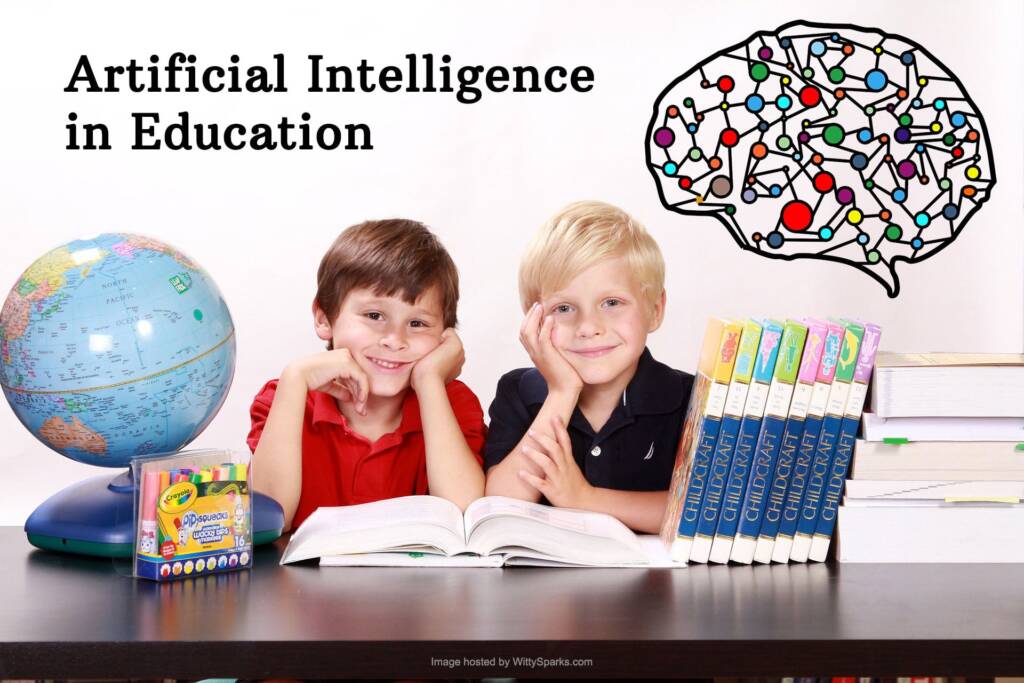Is Nigeria ready for Artificial Intelligence in schools?

In the past, artificial intelligence was just something relegated to science fiction propagated by books and movies.
Self-driving cars, a toothbrush that tells you the best way to brush your teeth, a voice recognition software that unlocks your phone, your face unlocking your laptop and other devices – all these were only scenes from sci-fi books and movies.
By way of definition, the American technology giant International Business Machines Corporation defines AI as referring to any human-like intelligence exhibited by a computer, robot, or other machines.
In popular usage, AI refers to the ability of a computer or machine to mimic the capabilities of the human mind – learning from examples and experience, recognising objects, understanding and responding to language, making decisions, solving problems – and combining these and other capabilities to perform functions a human might perform, such as greeting a hotel guest or driving a car.
IBM notes that the surge in AI development is made possible by the sudden availability of large amounts of data and the corresponding development and wide availability of computer systems that can process all that data faster and more accurately than humans can.
Today, AI is completing our words as we type them, providing driving directions when we ask, vacuuming our floors, and recommending what we should buy or binge-watch next. AI is driving applications that help skilled professionals do important work faster and with greater success.
AI has come to life and is part of our everyday lives. It has disrupted and will continue to have tremendous impacts across sectors, including education.
Speaking of AI and education, it is said that AI educational solutions are continuously maturing, filling the gaps in learning and teaching and allowing schools and teachers to do more.
According to Market Research Engine, a global market research and consulting organisation based in the United States, the global AI in the education market will reach $5.8bn by 2025 at a compound annual growth rate of 45 per cent.
The following are, therefore, five ways AI is changing the education industry as well as how institutions and educators can benefit from it.
Task automation
According to Ideamotive, a software company based in Warszawa, Poland, AI has shown great potential in automating administrative work and making the tasks of schools and teachers easier.
Normally, teachers have to manage numerous administrative and organisational tasks besides managing the classroom environment. They need to evaluate homework, mark tests/exams, manage teaching materials, and make periodic progress reports, and more.
In fact, a survey by Ideamotive reveals that teachers spend only about 43 per cent of their time on real teaching and the rest on non-teaching tasks.
This is where AI can be quite handy as it has the power to grade tests and manage administrative work, taking a huge load off of teachers’ shoulders.
Smart content
Smart content refers to different types of virtual content, including digitised guides of textbooks, video conferencing, and video lectures.
Robots can now improve the learning experience by creating customisable learning interfaces and digital content that apply to students of different grades.
The robots are able to make the content easily digestible by dividing it into comprehensible chunks, highlighting important lesson stuff, summarising key points, and more.
Personalised learning
A study by Rand Corporation, a global policy think tank shows that customised learning can improve student performance no matter what their starting level is.
As every student has a different approach to learning and teachers don’t have the time to personalise their teaching methods and provide one-on-one sessions for every student, AI can be of great help.
AI can do much more than making content easily digestible. It is also capable of giving recommendations to students and teaching them based on the difficulties they are facing in different lectures.
Such tools can also help teachers track each student’s progress and provide data that can help to create materials that are relevant for each student.
24/7 assistance
In the traditional environment, students have to wait until they are in class to ask their teachers any questions. Not anymore!
Now, there are various AI-powered chatbots created specifically for the education sector.
These chatbots serve as round-the-clock assistants that students can consult with anywhere and at any time. This allows the students to get quick and relevant answers or solutions without having to wait for the next class or office hours.
Secure online exams
Today, many institutions and universities around the globe use AI-powered assessment tools to carry out tests or exams online.
AI can allow limiting the availability and creating different groups with a selection of random questions for each student so as to prevent cheating. This saves teachers lots of time and avoids the risk of human error.
